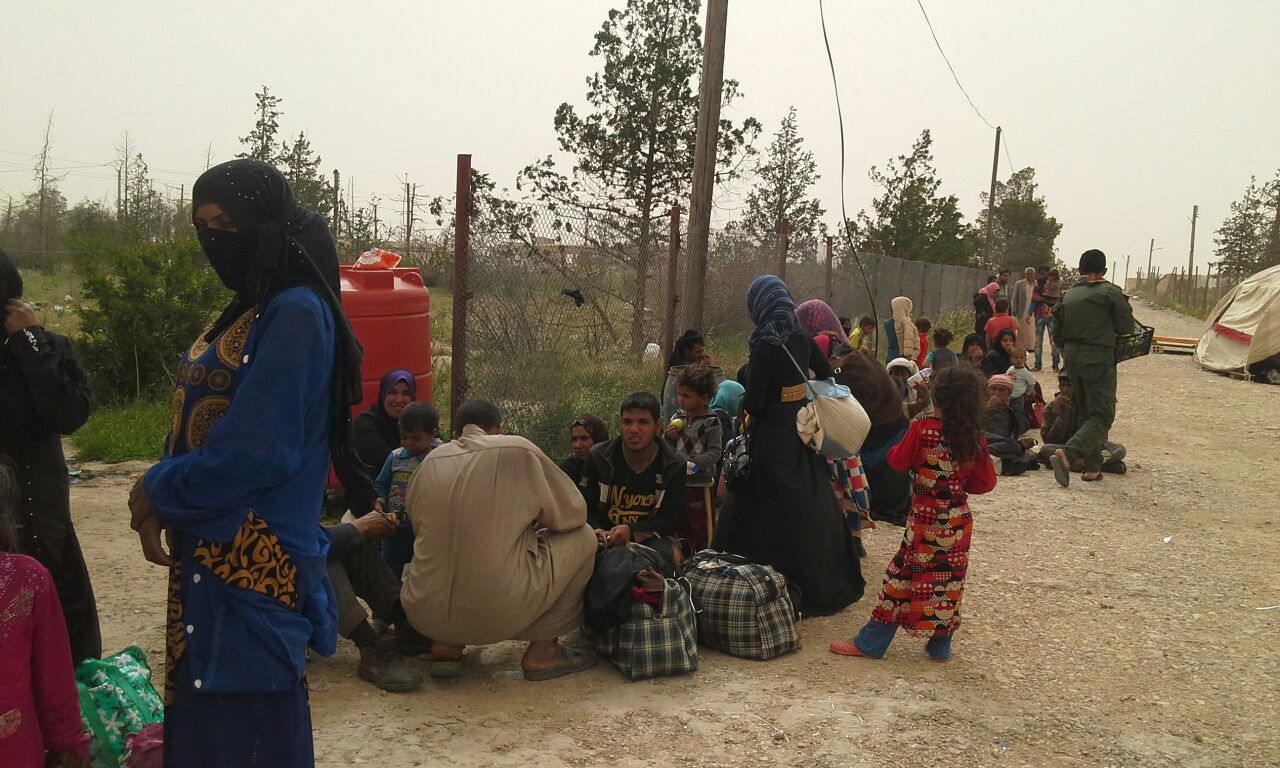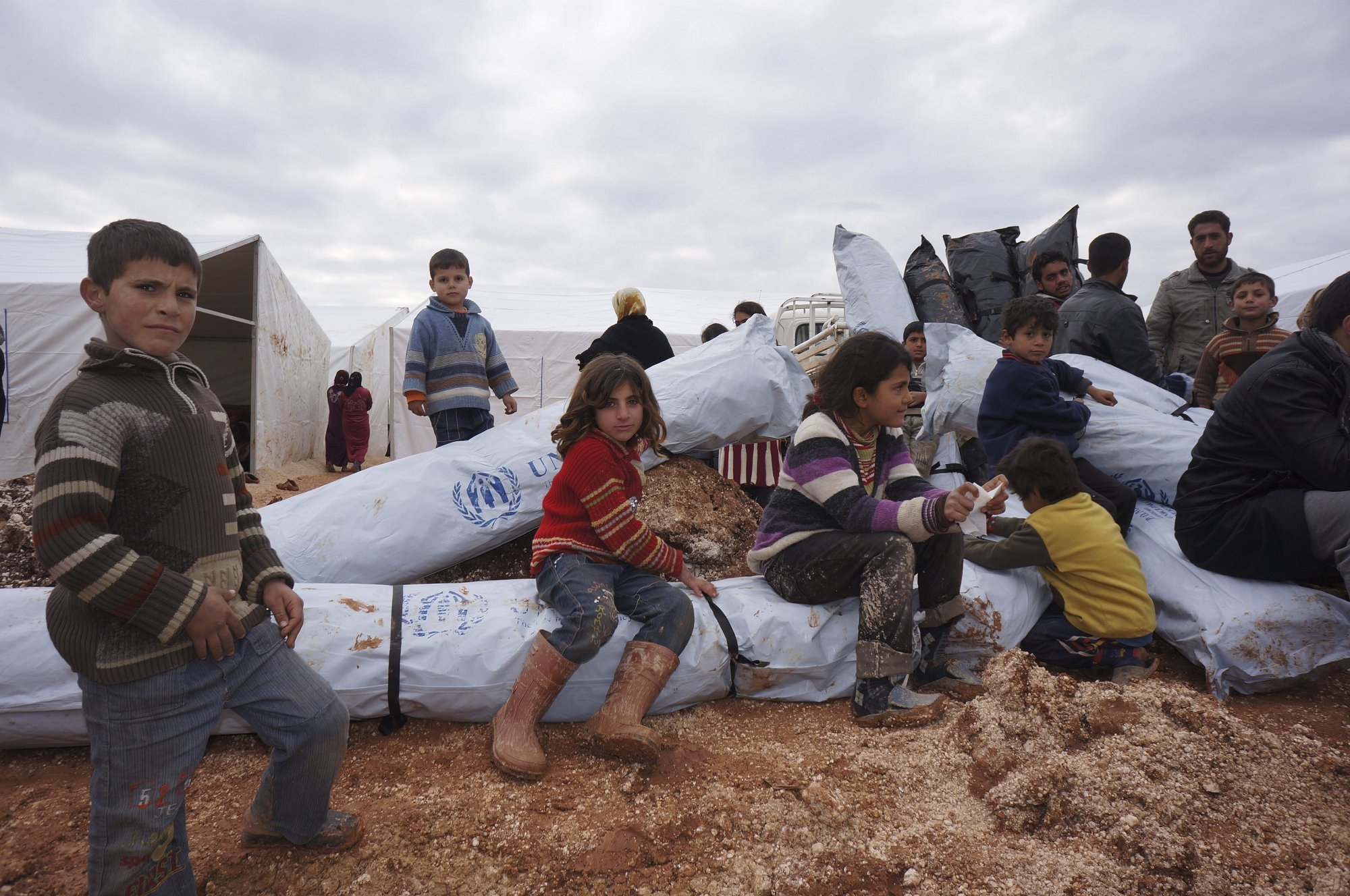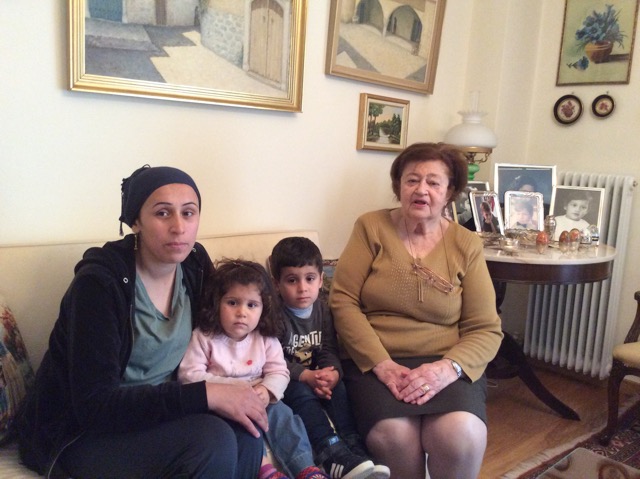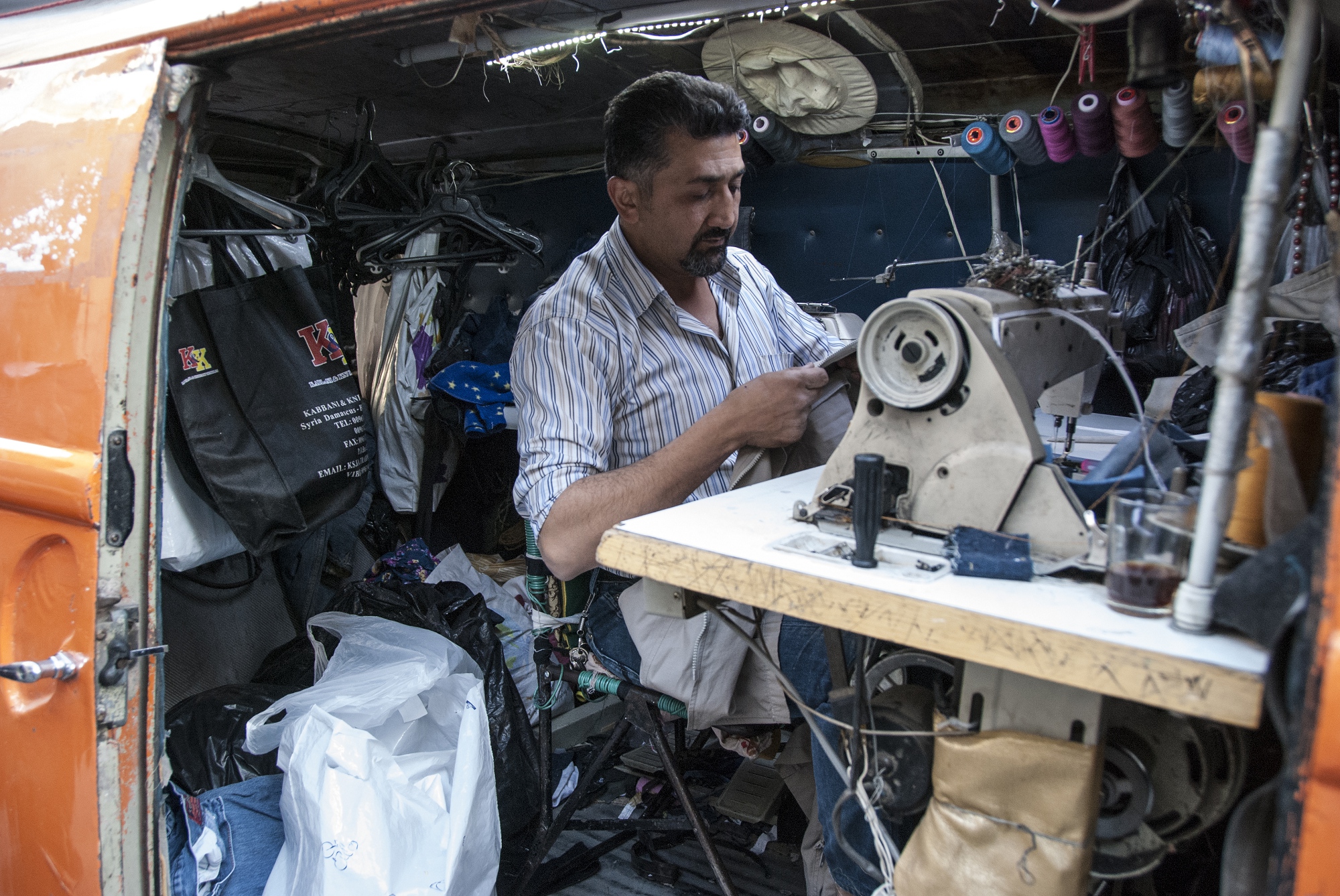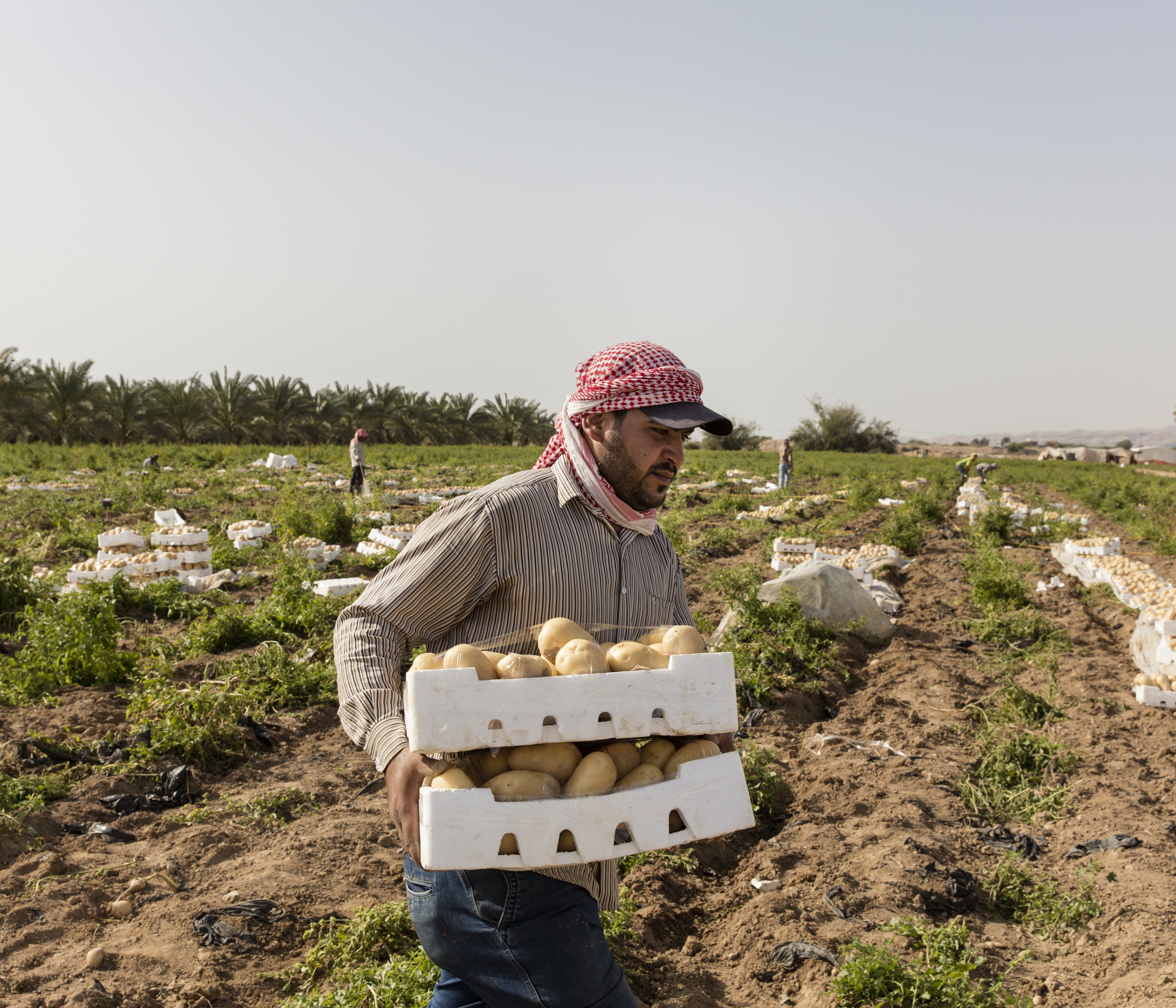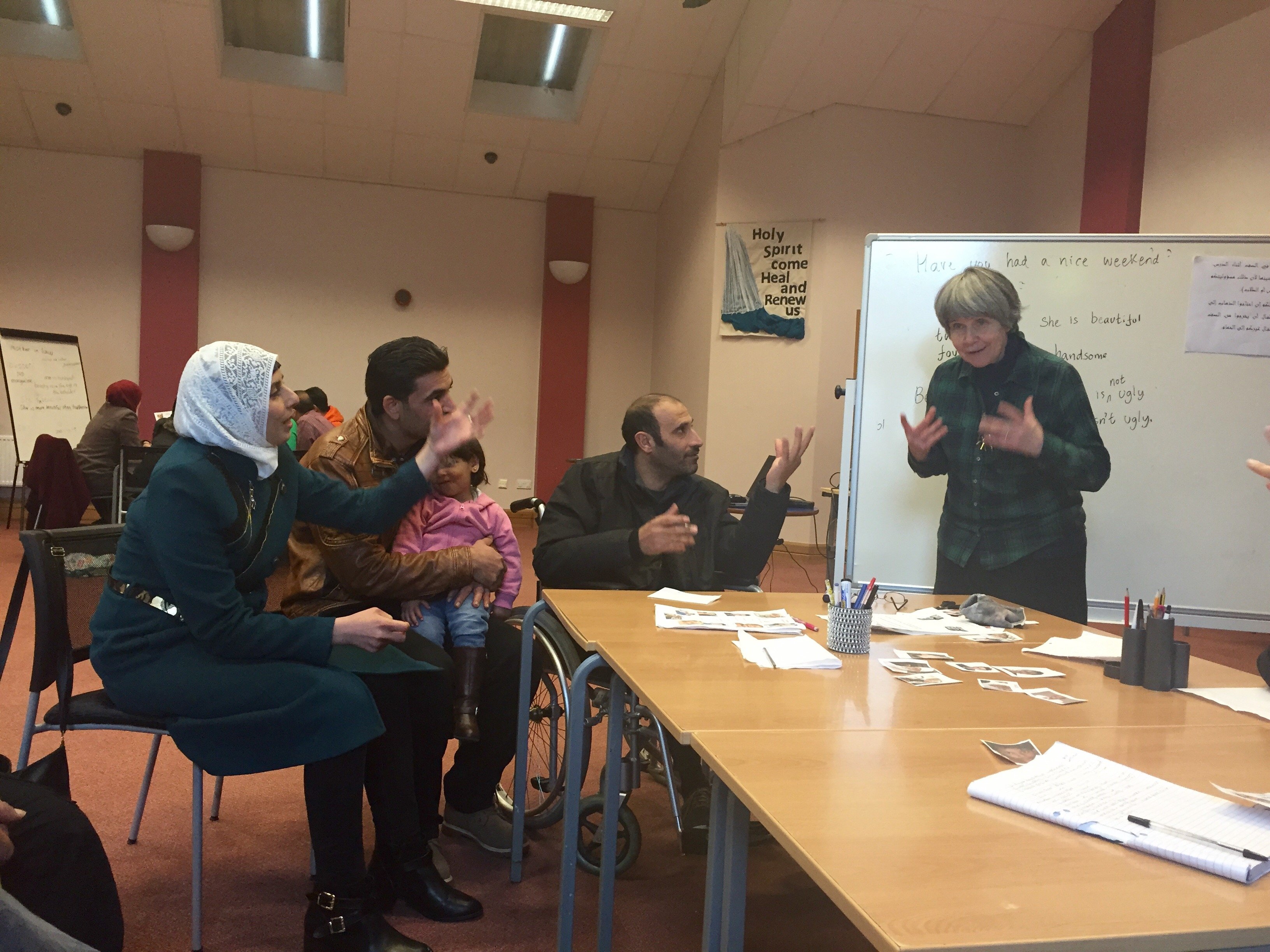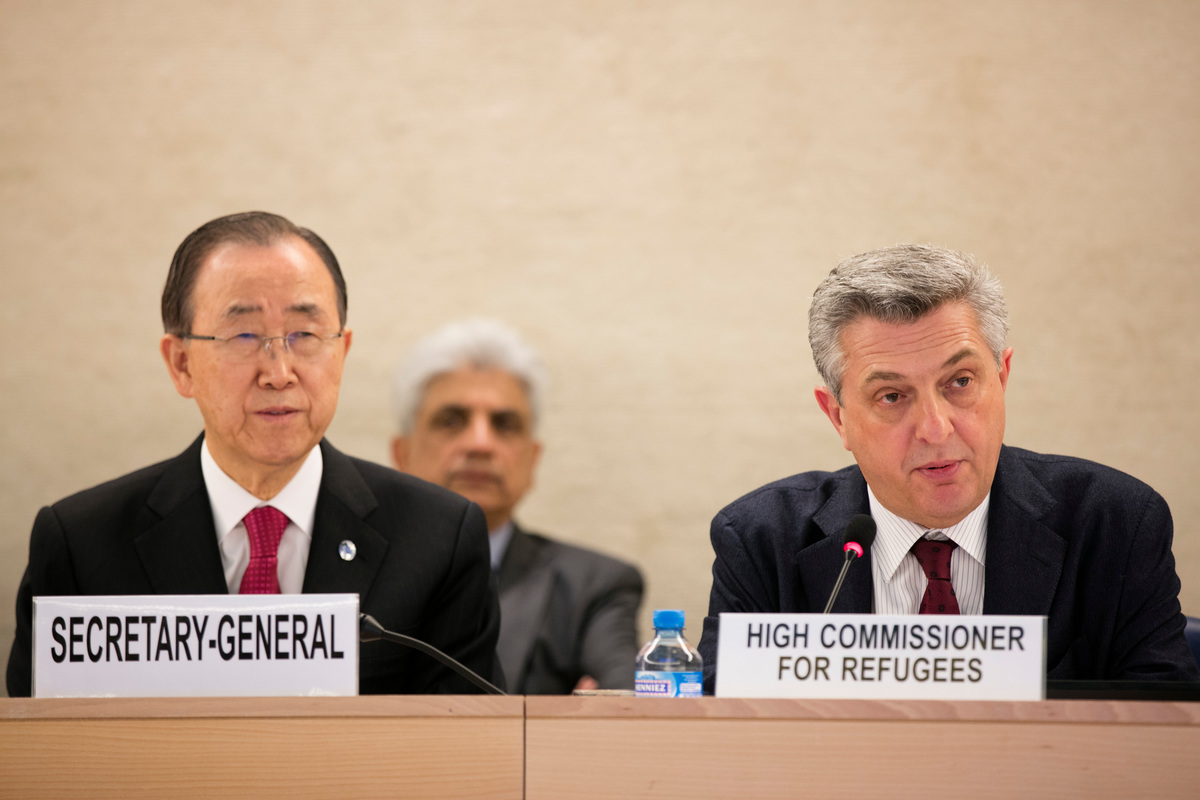Kuwait gives UNHCR US$110 million for Syria operations
Kuwait gives UNHCR US$110 million for Syria operations

GENEVA, April 18 (UNHCR) - UN High Commissioner for Refugees António Guterres on Thursday warmly thanked and praised Kuwait after receiving an unprecedented US$110 million cheque from the emirate for its Syria crisis operations.
Speaking at a presentation ceremony in Geneva, the High Commissioner also urged other countries to follow Kuwait's example, which he said had given UNHCR and other UN agencies a "breathing space" at a time when funding is desperately short.
He reiterated a proposal that governments set up a special fund for the Syria crisis, rather than tap existing budgets for humanitarian crises because these were not sufficient for the task. "There is no way to fund the needs of the Syrian people, inside and outside, with the traditional budgets," he stressed, while nothing that "things are getting worse day by day [in Syria]."
Kuwait's Ambassador Dharar Abdul-Razzaq Razzooqi gave cheques totalling US$275 million to UNHCR and sister organizations on Thursday, including the World Food Programme (US$40 million), the World Health Organization (US$35 million), UNICEF (US$53 million), the UN Relief and Works Agency (US$15 million) and the UN Office for the Coordination of Humanitarian Affairs (US$10 million).
He said the Syrian refugees in neighbouring countries "need a lot of help, they need a lot of care and I think UNHCR has a big burden." He added that it had taken time to disburse the money because the Kuwait government and its partners needed to assess where needs were greatest.
Guterres said that before the contribution from Kuwait, UNHCR's Syria crisis operation was only 30-32 per cent funded. The Kuwaiti donation - the largest ever for UNHCR from a Gulf nation - would bring it above 50 per cent. "That is an extremely important contribution because it allows a breathing space that is necessary for other contributions to come."
But he said the needs continue to grow: an updated regional response plan for Syrian refugees in December predicted that the number of refugees would hit 1.1 million by mid-year 2013. But Guterres revealed that on Wednesday, that figure stood at 1.367 million. And he said Syrians were fleeing Syria at a rate of 8,000 a day. A new appeal is due in May, he said.
"This demonstrates that we are having a much bigger task than the one that was initially foreseen. But unfortunately our programmes were all relatively under-funded . . . With the Kuwaiti contribution, that has changed substantially the situation and has given us the power to go on intensifying our efforts," the High Commissioner said.
But Guterres noted that while UNHCR and its partners had been able to work around Syria and in neighbouring countries, the scale of the problem and its growth meant that "our capacity to deliver is out of proportion with the needs." These needs include shelter, food, health support, access to education for children, psycho-social counselling and financial support, he said.
He said that was why UNHCR and its partners, including other UN agencies present at Thursday's presentation, were calling on governments to set up a special fund for Syria. "This is not a crisis like any other one; the dimension, the intensity, the level of suffering, the level of destruction are such that this cannot be met with usual humanitarian budgets," he said.
"That is why my colleagues and I have been insisting on the need for special budgetary allowances being approved by parliaments as soon as possible in order to be able to fund this dramatic humanitarian situation," added Guterres, who was confident that there would be support.
"Without Kuwait's timely contribution we would all be in extreme difficulties," he stressed while noting that the crisis was by no means over and that if there was no political solution, the number of refugees could triple by the end of the year. Urging others to follow Kuwait's lead, he warned that without sufficient funding, "We will probably have to restrict our activities to core protection and basic-life saving assistance."
Representatives of the other organizations at Thursday's gathering in Geneva all said they were suffering from severe funding shortfalls and the contribution from Kuwait would have a big impact. WHO Assistant Director-General Bruce Aylward said it would allow his organization to reach 3.7 million people in need from the current 2 million. "We're looking for a step change to what we can do," he said.
Thanking Kuwait, Guterres praised the "wisdom and the courage of His Highness the Emir [Sabah Al-Ahmad Al-Jaber Al-Sabah] in deciding to act through the international, multilateral humanitarian system. This indeed raises the voice and the influence of Kuwait in the international community."

